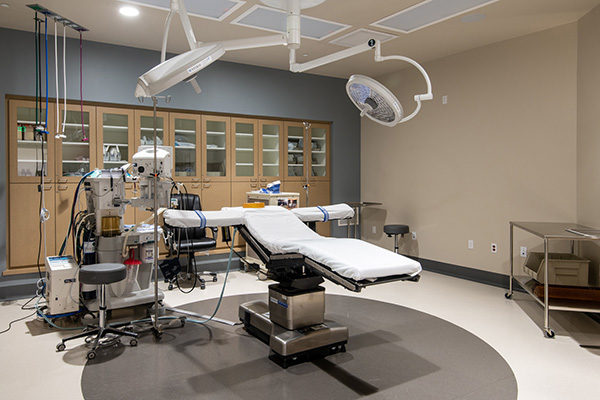
What Occurs Throughout the First Week After Your Rhino Surgery?
Introduction
Rhinoplasty, typically referred to as a nose surgery, is among the most popular cosmetic treatments. Lots of people undergo this surgical treatment to boost their facial visual appeals, appropriate structural problems, or enhance breathing functionality. Nevertheless, the journey does not end once you leave the operating space. The very first week post-rhinoplasty is crucial for healing and figuring out the long-term results of your nose job surgical treatment.
In this detailed guide, we will explore What Happens During the First Week After Your Rhino Surgery? and explore everything from expected symptoms and care suggestions to possible issues and follow-up visits. Whether you're considering the procedure or have currently undergone it, comprehending this important phase can assist you navigate your healing with confidence.
Understanding Nose surgery Surgery
What is Rhinoplasty?
Rhinoplasty is a surgical procedure focused on reshaping or rebuilding the nose. It can include altering the cartilage, bone, skin, or all three to achieve preferred visual outcomes or improve functional concerns like breathing difficulties.
Types of Nose surgery Procedures
Why Do People Undergo Rhinoplasty?
- Aesthetic enhancements
- Correcting congenital deformities
- Repairing injury-related damage
- Addressing breathing problems
What Occurs During the First Week After Your Rhino Surgery?
The preliminary week following your rhinoplasty surgical treatment can be both amazing and difficult. Here's what you can usually anticipate:
Day 1 Post-Surgery: Arrival Home
After spending a long time in best rhinoplasty surgeons healing at the medical center, you'll return home with a nasal splint and possibly packing inside your nostrils to help support your new nose structure.
Symptoms:
- Swelling
- Bruising around eyes
- Mild pain manageable with recommended medication
Care Tips:
- Keep your head elevated even while sleeping.
- Apply ice bag gently on swollen areas.
Day 2 Post-Surgery: Handling Discomfort
Your discomfort levels might peak on this day due to increased swelling.
Symptoms:
- Moderate discomfort
- Increased swelling
- Potential bleeding from nostrils
Care Tips:
- Continue taking medications as prescribed.
- Avoid blowing your nose or participating in difficult activities.
Day 3 Post-Surgery: Swelling Peaks
By day three, swelling generally reaches its optimum point.

Symptoms:
- Noticeable puffiness around eyes
- Difficulty breathing through nostrils if packing remains
Care Tips:
- Follow up with your surgeon if bleeding persists.
- Maintain hydration but avoid bending over.
Day 4 Post-Surgery: Initial Indications of Recovery
Swelling starts to gradually decrease after reaching its peak.
Symptoms:
- Slightly lowered swelling
- Possible itching as nerve endings start healing
Care Tips:
- You might feel ready for light activities; however, be cautious.
Day 5 Post-Surgery: Follow-Up Appointment
Most surgeons arrange a follow-up consultation within this timeframe.
Symptoms:
- Continued bruising however improved mobility
- Possible removal of nasal packing/splint
Care Tips:
- Prepare questions for your doctor concerning recovery progress.
Days 6 & 7 Post-Surgery: Adapting To Changes
As you approach one week post-surgery, physical changes become more visible as swelling subsides significantly.

Symptoms:
- Bruising starts resolving
- Breathing becomes simpler
Care Tips:
- Start light walks however avoid any effect sports.
Common Issues Throughout Recovery
Managing Pain and Discomfort
Pain management is essential throughout recovery. Over-the-counter medications may not be adequate; for this reason recommended narcotics ought to be taken as directed till bearable levels are achieved.
Dealing with Swelling and Bruising
It's crucial to know that swelling can stick around beyond simply a week but will reduce substantially in time. Cold compresses can offer short-term relief during those first few days post-operation.
Signs of Problems to Enjoy For
While most healings are smooth cruising, some indication require immediate medical attention:
Rhinoplasty Cost Considerations
Understanding Rhinoplasty Costs
Rhinoplasty costs differ extensively based on elements such as place, cosmetic surgeon expertise, and whether it's primary or revision surgery.
|Factor|Average Expense|| ---------------------------------|------------------|| Surgeon's Charge|$3,000 - $15,000|| Anesthesia|$600 - $1,200|| Facility Charges|$800 - $2,000|| Total Estimated Expense|$5,000 - $25,000|
Note: Insurance coverage may cover nose jobs carried out for medical factors; verify your protection beforehand!
Post-operative Care Tips for Ideal Recovery
Nutritional Support for Healing
A well balanced diet rich in vitamins C and E aids healing by promoting recovery and reducing inflammation.
Hydration Matters!
Staying hydrated throughout healing can not be overemphasized-- water supports general health and assists handle swelling effectively.
Avoiding Particular Activities
For a minimum of 2 weeks post-surgery, refrain from exhausting workout or contact sports that might jeopardize recovery efforts.
FAQs About Nose surgery Recovery
1. For how long does it require to see final results?
It can take up to one year for outcomes to totally manifest as swelling gradually subsides over months following surgery.
2. Can I use glasses after rhinoplasty?
You needs to avoid wearing glasses for about 4 weeks unless encouraged otherwise by your cosmetic surgeon given that they can place pressure on your nose affecting healing.
3. When can I go back to work?
Most individuals return to non-strenuous jobs within a week; nevertheless, speak with your surgeon regarding when it's safe based upon individual cases.
4. Will there be visible scars?
Scars are usually minimal; open nose jobs may leave little marks under the nose that fade gradually without significant presence concerns if treated well.

5. Can I blow my nose after surgery?
You must avoid blowing your nose for at least two weeks post-surgery due to risk of interrupting delicate healing tissues inside the nasal passages.
6. What if I experience abrupt extreme pain?
If you experience unexpected serious discomfort that doesn't respond to medication or worsens gradually-- look for medical attention immediately!
Conclusion
The first week after rhinoplasty surgical treatment holds significance in guaranteeing optimal healing while permitting clients a chance to season themselves with their new look gradually gradually. Understanding each day's development will empower you throughout recovery while helping with communication with doctor when required concerns emerge relating to care procedures or expectations going forward into subsequent weeks post-op!
Being informed about every aspect-- from initial pain through caring regimens-- can help not only in reducing anxiety surrounding surgical experiences but also foster satisfaction with long-term outcomes attained via this transformative procedure! Remember that perseverance plays a vital role; provide yourself grace throughout this recovery journey!